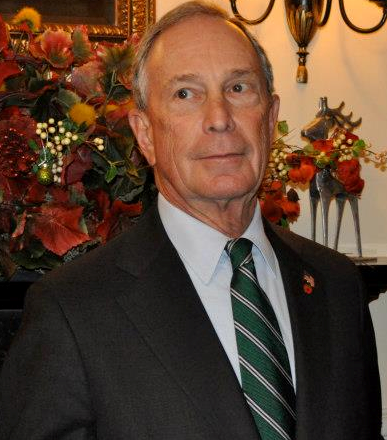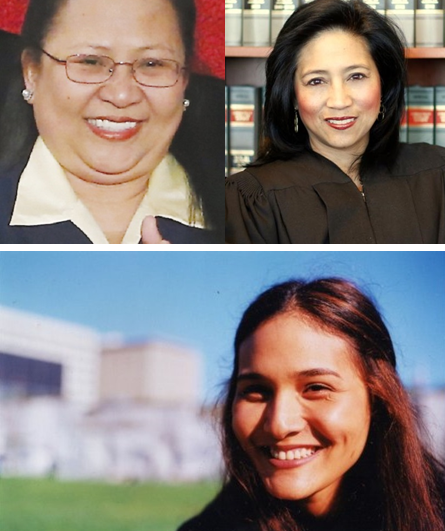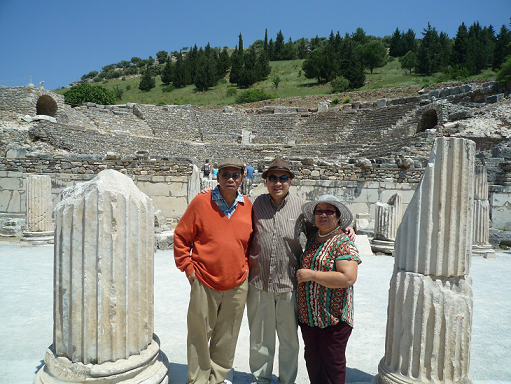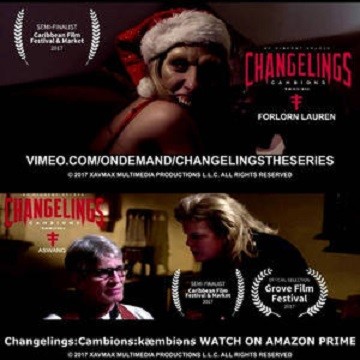What happens to nurses who go into retirement?
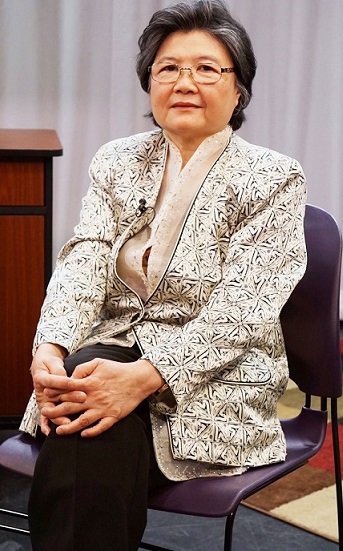
RN Myrna Santos appearing on MAKILALA TV show on the episode, ‘Filipinos in Queens: Why We Matter.’ Photo by Lambert Parong/Balitang New York
For the tens of thousands of Filipino American nurses in the New York metropolitan area, options for the proverbial ‘long vacations’ are varied.
Some go into business by opening their own staffing agencies or nursing homes for the elderly. Some pursue hobbies they have put in the back burner, such as traveling, learning golf or taking voice lessons. Some find gratification in Atlantic City slot machines or go on shopping sprees while figuring out ‘what’s next.’ Some nurses who are widowed or separated find encore romances and start relationships. Nurses, it should be noted, are usually financially prepared and retire in comfort.
Whatever they do in retirement, “it’s something they were not able to do when they were nurses because they were working very hard,” said Registered Nurse Myrna Santos, founder of The Nursing Office (TNO), a nonprofit organization that offers lifestyle options for nurses living in retirement. It has an office in Richmond Hill in Queens.
Myrna, a staff nurse at the Veterans Affairs NY Harbor Healthcare System in Brooklyn, founded TNO nearly 10 years ago after experiencing intense ‘burnt-out’ on the job that made her contemplate a future away from nursing. TNO offers a menu of activities including a stress reduction program for nurses, she said.
“The Nursing Office will take care of nurses,” she said in an interview with The FilAm.
Myrna, from Zambales province, has been an RN for 40 years, starting her career at the UST Hospital’s Intensive Care Unit (ICU) in Manila after graduation. After three years, she found a nursing position at Mount Sinai Medical Center in Miami Beach, Florida. Some 10 years later, she continued on to be an ICU staff nurse at the Veterans Hospital where she remains to this day a bedside nurse.
“ICU is where you deal with the sickest (patients) and I’m there taking care of them, making them heal,” she said.
On her 30th year providing care to patients in life-threatening conditions, Myrna confessed to feeling burnt-out.
“All of a sudden I wanted to go to school,” she recalled that lightbulb moment that would trigger the idea behind TNO. “There’s so many times I was disappointed in nursing because of the stressful work, I was bored, I wanted to get out.”
She finished her master’s degree online and went entrepreneurial, first in clothing and later in the food distribution business. While she did not really leave nursing as she desperately wanted to do, she at least found out that as a nurse, she could do other things and was not limited within the confines of the health care industry. The realization gave her confidence and courage.
TNO has various activities for nurses who wish to stay active while remaining in the bliss of just doing nothing. It has health awareness and political campaigns on diabetes education, the aging population, as well as the Affordable Health Care Act. It has art projects where nurses can dabble in painting and later participate in group exhibits. It has dance and acting workshops. Last year, TNO staged “Ang Pagdating ng Krus at Espada,” a production about the advent of Catholicism in the Philippines. Myrna said many in the cast dancing in the background were retired nurses.
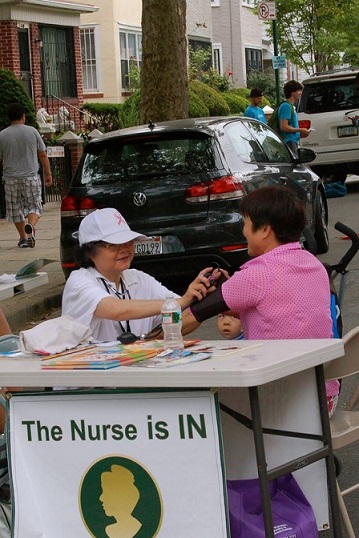
At the Kalusugan Coalition’s street fair in Woodside, The Nursing Office had a table offering blood pressure check-ups.
There are many things retired nurses can do, said Myrna, and some of them involve activities where they are able to “give back to the community.” Some of them volunteer with their local churches or community organizations or join medical missions to the Philippines.
Entrepreneurial nursing is a “new trend,” she said further. Retired RNs set up their own businesses, such as nursing homes, facilities for the disabled, or staffing registries. Some open their own schools where they train nurses, for example, on Minimum Data Set and other specialized clinical courses.
Retirement can also take nurses to another route. There are retired nurses who “go into trouble,” said Myrna. “They are the ones who, instead of doing something nice, they smoke, they go to casinos, and lead a troublesome lifestyle.” She cannot estimate how many they are but said, “they can be a significant number.”
A 2013 report published by the Health Resources and Services Administration, an agency of the U.S. Department of Health and Human Services, puts the nursing workforce nationwide at 2.82 million registered nurses and 690K licensed practical nurses (LPN). In New York State the estimate is 196K RNs and 46K LPNs; in New Jersey, there are 75K RNs and 16K LPNs.
Anecdotally, Filipino nurses are a big segment of the workforce of hospitals and nursing homes. In some senior facilities, FilAms make up as much as 90 percent of the nursing staff.
“Because of the shortage, nurses are always working overtime, which is Ok because they are sending children and relatives to school. ‘Double job’ is a way of life for them,” said Myrna, who shared the story of one Filipina nurse who has worked in all hospitals in New York City on rotating schedules.
“A nurse will always be a nurse,” she said. “It is a profession known for kindness and caring. Whatever they do, they will find activities that give them personal fulfillment.”


